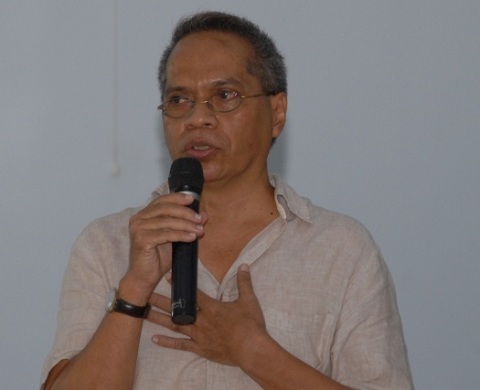Timor-Leste: The bumpy road to democracy

10 years since the restoration of formal independence, Timor-Leste has achieved what many thought to be the impossible.
Despite a number of setbacks, it has already laid solid foundations for the consolidation of democracy. This past month, the former guerrilla leader of Timor-Leste’s defence force, Jose Maria Vasconcelos, who is more commonly known by his nom de guerre ‘Taur Matan Ruak’ or ‘Two Sharp Eyes,’ was elected President. The peaceful transition of power took place during celebrations on Timor-Leste’s 10th anniversary on May 20. Now the citizens of Timor-Leste are preparing for the upcoming Parliamentary elections to be held this July.
While these accomplishments are inspiring, there is still much to be done in order to establish lasting peace.
Poverty, unemployment and corruption remain persistent realities of everyday life. At the local level, complaints are often made about the powerlessness and limited amount of local government representation. Power continues to be centralized in the hands of the elite in the capital city of Dili. As a result, there are few opportunities for the State and citizens to engage each other effectively.
A recent research report on such issues, titled “Valuing the collective sacrifice of independence in the consolidation of democracy in Timor-Leste,” ( Read the full report (PDF)) was conducted by Interpeace local partner, the Centre of Studies for Peace and Development (CEPAD). Based on countrywide consultations throughout Timor-Leste’s thirteen districts, the report notes how citizens have expressed their dissatisfaction with the process of democratization and development in the post-independence period. Many pointed out that beyond the few who hold strong connections within the patron-client relationship system in Timor-Leste, democratic initiatives have not yet improved the conditions of everyday life.
Research participants countrywide admitted that widespread confusion over the concept of democracy, coupled with the ‘institutionalization’ of political patronage networks, are negatively affecting constructive participation in both the public and political spheres. This is preventing any real dialogue from taking shape, as citizens are often unaware of their fundamental rights and responsibilities within the new political system. Research also found that transparency and accountability remains poor, where the existing institutional “checks and balances” have failed to adequately ensure the redistribution of power.
Nevertheless, João Boavida, Executive Director of CEPAD, is optimistic about the process of democratization in his country: “Though the country faces a harsh reality, such impediments do not spell defeat for Timor-Leste. We have come so far already, and our accomplishments should not be discredited. These obstacles must not render Timor-Leste’s democratic steps to be insignificant. The hardest part has been overcome, and the true benefits are yet to be reaped.”
He comments further: “As democracy remains the foundational bedrock for a peaceful and constructive road ahead, it is imperative for the local population to be more actively engaged with the government and take on an integral role. Rather than allowing power to be wielded solely in the hands of the political elite, the new Timor-Leste must now work collectively to overcome corrupt practices, which is, of course, easier said than done.”
When asked what might come next for his country, João mentions: “If independence has demonstrated one thing, it is that the citizens of Timor-Leste have one of the strongest wills to be found anywhere in the world. These setbacks we see must be viewed as bumps in the road rather than mountains to climb. Let us continue to march on.”
He closes: “By enabling dialogue that is inclusive, constructive and clear, rather than exclusive and incoherent, Timor-Leste will help itself prosper. Only through such cooperation and recognition can the country then begin its next 10 year cycle and prove to the world that it can continue to achieve the unimaginable.”
